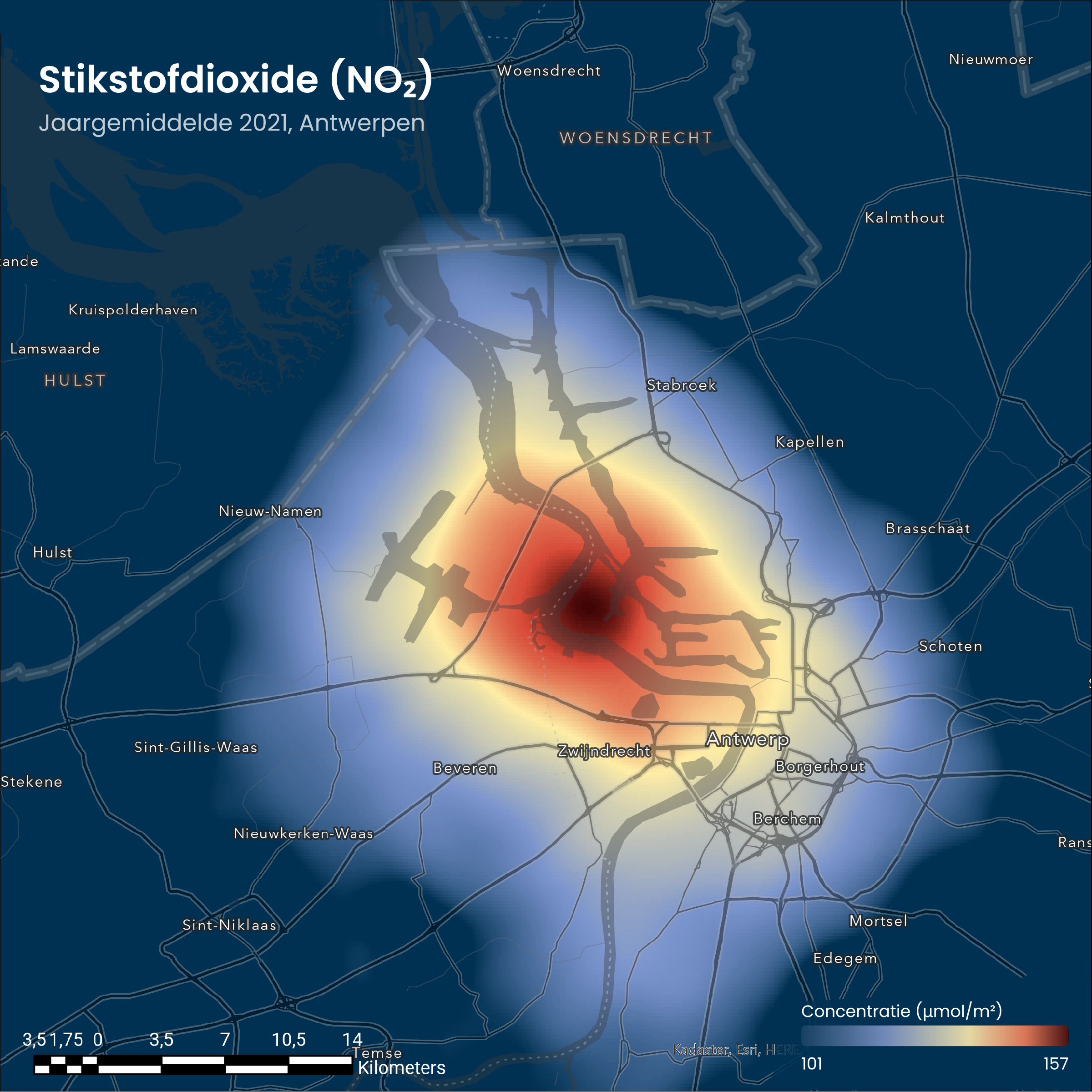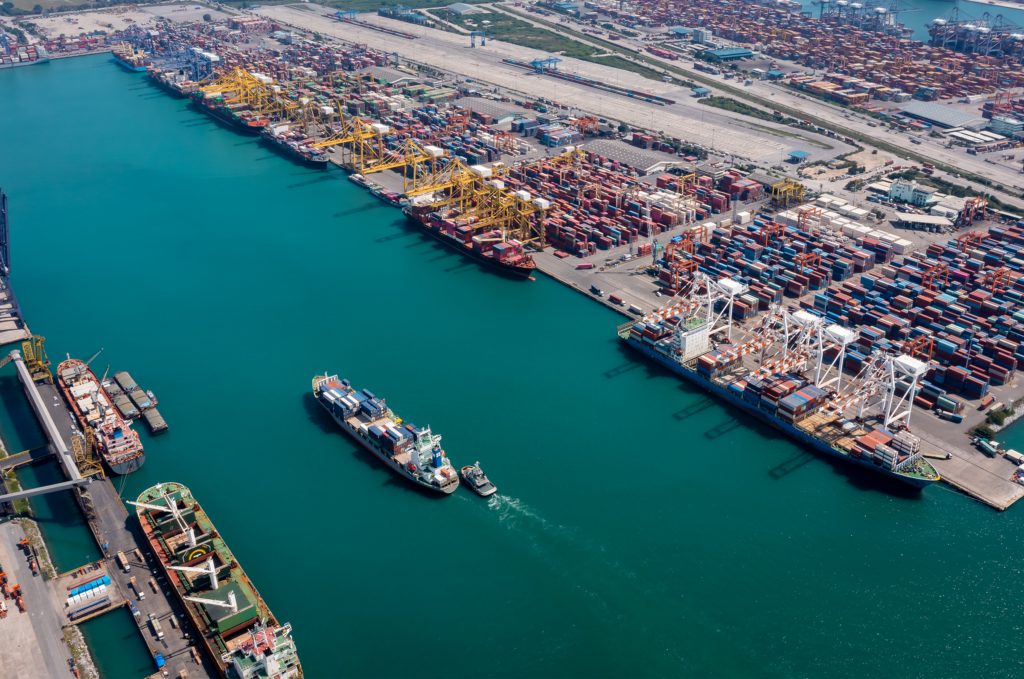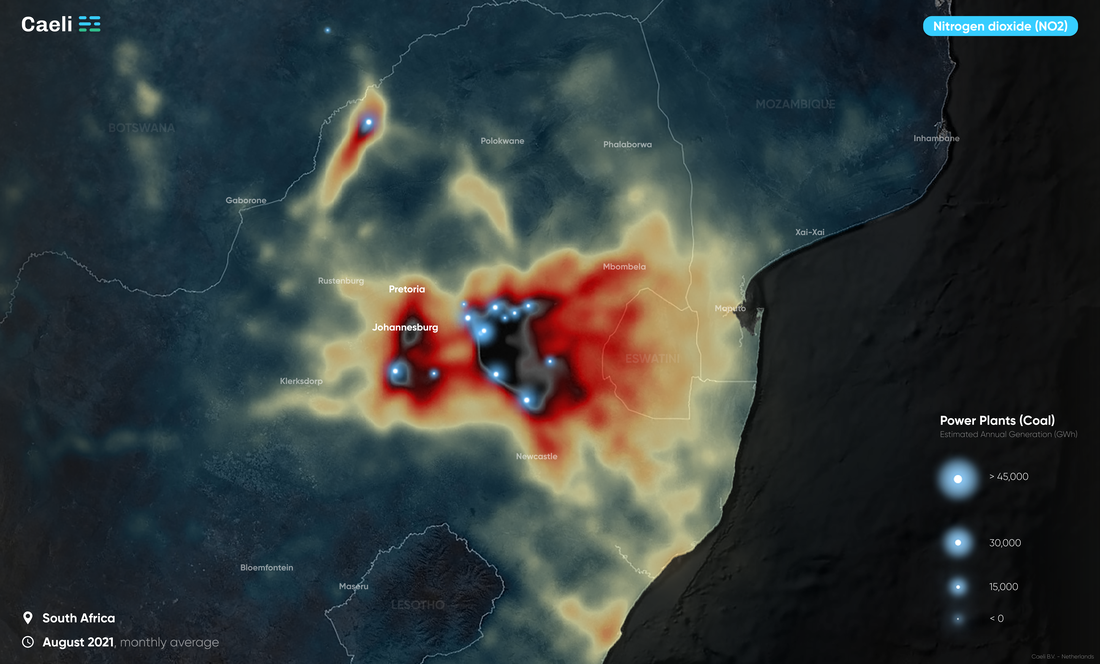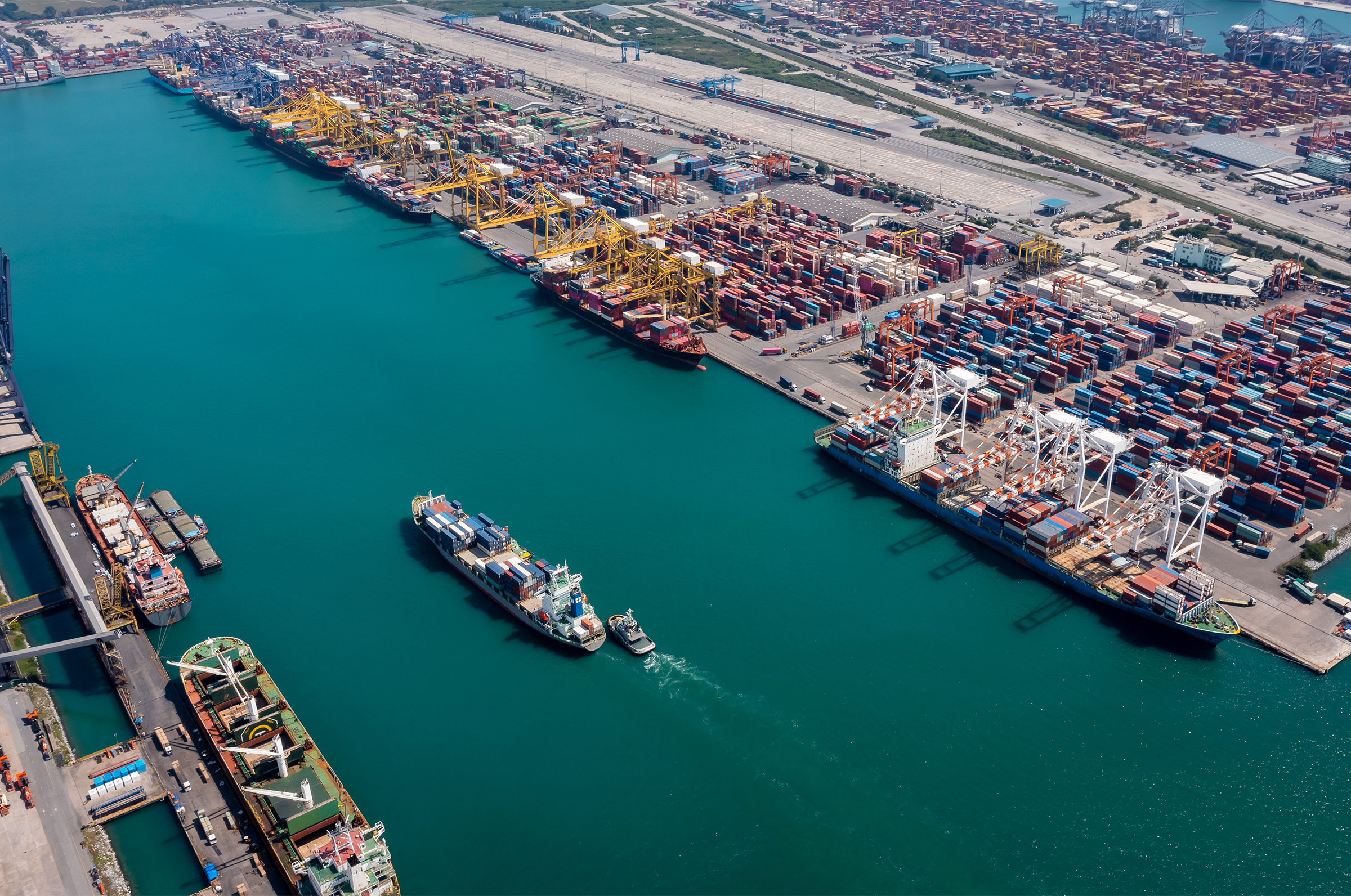In the past few years cities have taken more and more measures to improve air quality. Such as implementing environmental zones and minimizing the burning of solids and waste. But do these measures actually work? At Caeli we are able to track cities and their emissions. This way governments, organizations and businesses can keep track if their measures are impactful or if they should implement new ones.
Monitoring cities
We are able to track emissions in cities on a daily basis and take key-factors such as the direction of the wind or weather conditions in consideration. The challenge of monitoring high density cities is that there are many pollutors. This makes it difficult to keep track of which emissions are from which pollutor.
Emissions in Antwerp
An example of how we track emissions in cities is the map of Antwerp below. You can see that there is a lot of emission coming from the harbour. However it is unclear if the emissions have flown over from the city or if they are actually only coming from the harbour.

Deep tech algorithm
We have developed an AI algorithm which calculates, using different indicators, whether or not an asset or an city emits a lot. Assets can be different things, for example powerplants. There are multiple of those placed surrounding Antwerp.
Monitoring around the world
The algorithm calculates all cities around the world using the same formula. This way it is easier to rank, compare or monitor different assets in different cities. It also makes monitoring cities around the world more accessible, as they are all measured the same way.
Caeli
Here at Caeli we believe that everyone has the right to breathe fresh air on a daily basis. We want to fight climate change and air pollution. Our products and datasets can help organizations and businesses with their missions against emissions. You are on the right track to learn more about air quality. Feel free to contact us to find out what you can do to fight air pollution and climate change.



